
Join a free event
Learn from top coaches and industry experts in live, interactive sessions you can join for free.
Table of Contents
Intro to MBA Programs
Welcome to the world of Master of Business Administration (MBA) programs! In today's competitive business environment, an MBA can give you a significant advantage in advancing your career. Whether you are a recent graduate starting to build your career or a seasoned professional looking to pivot into a new field, pursuing an MBA can open doors to a range of exciting opportunities.
Business school can provide you with a solid foundation in business principles and equips you with the skills necessary to thrive in various industries. The curriculum typically covers a wide range of subjects, including finance, marketing, operations management, strategy, and leadership. By studying these areas, you will develop a comprehensive understanding of how businesses operate and how to make strategic decisions to drive success.
One of the key benefits of pursuing an MBA is the networking opportunities it offers. MBA programs often attract a diverse group of students from different backgrounds and industries. This diversity creates a rich learning environment where you can exchange ideas, collaborate on projects, and build a strong professional network that can benefit you throughout your career. Furthermore, many MBA programs provide access to top-notch faculty who are experts in their respective fields. These professors bring real-world experience and industry insights into the classroom, enhancing the learning experience and providing valuable guidance to students. Internships, study abroads, and other opportunities give MBA candidates the chance to learn outside of the classroom, as well as inside.
Read: The Different Types of MBA Programs—and Which One is Right for You
Applying to an MBA Program
When it comes to gaining admission to these top MBA programs, there are several factors to consider. You’ll need to demonstrate academic excellence, experience in business and/or leadership, and ambition to succeed in business school and beyond in your MBA application.
Read: The Complete MBA Application Guide
MBA Application Components
At a glance, here is what the application involves:
- Standardized test scores (GMAT/GRE): These assess your analytical, verbal, and quantitative skills. Some business schools may also accept an Executive Assessment (EA) score for those more advanced in their careers.
- Essays: One of the most important parts of the application, essays give applicants the opportunity to showcase their unique qualities, motivations, and aspirations.
- Letters of recommendation: Ideally, these come from people who are your greatest advocates and can speak to your skills, qualities, and goals in-depth. Choose your recommenders carefully, as this is one of the only parts of the application that’s outside of your control.
- Resume: An MBA resume is not the same thing as a job resume; you need to tell the story of your career, not prove your credentials for a specific role.
- Interview: All top business schools require applicants to conduct an interview with an alumnus or admissions officer. This is your chance to show your personality and make a deeper case for “why this school.”
MBA Application Prerequisites
In order to apply to business school in the first place, you will need:
- A bachelor's degree from an accredited institution
- Several years of work experience (unless you’re applying for a Deferred MBA Program)
- Some programs require that certain courses be taken before matriculating
By carefully considering these factors and putting in the necessary effort, you can increase your chances of gaining admission to a top MBA program. As admissions processes become more competitive, working with an MBA admissions coach can also help you navigate the application process. Remember, an MBA is not just a degree; it is an investment in your future and a stepping stone towards achieving your professional goals.
For more information on the application, see:
- MBA Application Deadlines of the Top 25 Business Schools
- A Comprehensive MBA Application Timeline—With Chart
- What is MBA Application Strategy?

The Customizable MBA Application Checklist
The MBA application is complex and time-intensive. Stay up-to-date with our free, comprehensive MBA application checklist.
Get Extra Help on Your MBA Application
Top MBA programs are highly selective and competitive and to get your application as strong as possible, it’s important to work with an admissions coach who can analyze your candidacy objectively and provide advice on how to strengthen it. Here are several of our most popular MBA admissions coaches, browse all of them here.
The Different Levels of MBA Programs
Before we delve into the specifics of the top MBA programs, it's important to understand the various levels of business schools, which can be roughly classified into three levels:
- The M7 Business Schools: These schools are renowned for their rigorous curriculum, esteemed faculty, and extensive networks. They consistently rank among the best MBA programs globally and offer unparalleled opportunities for growth and networking. The top schools are known as the “Magnificent 7” and include Stanford GSB, Harvard Business School, University of Pennsylvania Wharton, Northwestern Kellogg, MIT Sloan, Columbia Business School, and Chicago Booth.
- Top 25 Business Schools: While not as prestigious as the M7, the schools ranked 8-25 still provide excellent education and career prospects. Many top-tier schools have a specific focus or area of expertise, which can be advantageous if you have a particular interest. These include programs like Duke Fuqua, Dartmouth Tuck, Michigan Ross, UC Berkeley Haas, Yale SOM, NYU Stern, and UVA Darden, among others.
- Other Accredited Business Schools: These schools, while not among the top-ranked, still offer quality MBA programs. They often provide a more affordable option and have strong regional networks
The right tier of business school for you will depend on your goals and aspirations, budget, career plans, region, GPA/test scores, and many other factors. See How to Choose an MBA Program: The Discerning Student's Guide to learn more.
Pros and Cons of Attending a Top-Tier Business School
The M7 MBA programs have a long-standing history of excellence in business education. The rigorous curriculum ensures that students are equipped with the necessary knowledge and skills to thrive in the competitive business world. The faculty members are experts in their respective fields and bring a wealth of industry experience to the classroom. Additionally, the extensive networks of these schools open doors to prestigious internships, job opportunities, and influential alumni connections. The name-brand of the schools also opens doors that might otherwise be more difficult to get into.
However, it's important to note that these schools are highly selective. The application process requires a strong academic background, exceptional test scores, and impressive professional achievements. The competition among applicants is fierce, but the rewards of attending one of these schools can be life-changing. The more prestigious MBA programs are also the most expensive so attending one is a major investment for most.
Read: How to Choose an MBA Program: The Discerning Student's Guide

Does Going to a Top-Tier School Matter?
One question that often arises when considering MBA programs is whether attending a top-ranked school is worth it. While there are advantages to attending a highly prestigious institution, it's essential to weigh the pros and cons
Pros:
- Prestige and Reputation: Graduating from a top-ranked MBA program can enhance your professional credibility and open doors to coveted job opportunities
- Extensive Network: Elite schools often have vast alumni networks, providing valuable connections and mentorship opportunities
- Best-in-Class Faculty: Top-ranked schools attract renowned professors who bring expertise and industry connections to the classroom
- Access to Cutting-Edge Resources: High-ranked MBA programs often have state-of-the-art facilities, libraries, and research centers, giving students access to the latest tools and resources
- Global Recognition: Top schools have a global reputation, which can be advantageous for international job opportunities and networking
- Exposure to Diverse Perspectives: Attending a top-ranked school means being surrounded by a diverse student body, exposing you to different cultures, backgrounds, and ideas
- Opportunities for Leadership Development: Top-ranking business schools often offer robust leadership development programs, helping students develop essential skills for managerial roles
Cons:
- Fierce Competition: Admission to high-ranked MBA programs is highly competitive, with limited spots available. The application process can be intense and demanding, requiring exceptional academic and professional achievements
- Higher Tuition Costs: Prestigious schools often come with a higher price tag, which can place a financial burden on students. Scholarships and financial aid options may be limited
- Workload and Pressure: Excelling at a top-ranked MBA program requires dedication and hard work. The rigorous curriculum and competitive environment can be challenging to manage, leading to increased stress levels
- High Expectations: Attending a top-ranked school means higher expectations from employers and peers. The pressure to perform at a consistently high level can be daunting
- Less Flexibility: Some high-ranked MBA programs have a more structured curriculum, leaving less room for customization based on individual interests and career goals
- Networking Pressure: While the extensive alumni network can be beneficial, there may also be pressure to network and maintain connections, which can be time-consuming and overwhelming
- Limited Diversity: Despite efforts to promote diversity, some top-ranked schools may still lack representation from certain underrepresented groups, limiting the exposure to diverse perspectives

Ultimately, the decision to pursue an MBA at a top-ranked school depends on your career aspirations, financial situation, and personal preferences. It's essential to carefully evaluate the pros and cons before making a well-informed choice. Keep these factors in mind as you explore the top 25 full-time MBA programs below.
The 25 Best MBA Programs: Program, Ranking, Cost, and Acceptance Rate Overview
1. Stanford Graduate School of Business
- Location: Stanford, CA
- Tuition: $76,950 per year
- Acceptance Rate: 6-8%
Located in the heart of Silicon Valley, the Stanford Graduate School of Business provides students with a unique environment that fosters innovation and entrepreneurship. The curriculum emphasizes hands-on learning, encouraging students to develop their own business ideas and launch startups. Additionally, Stanford GSB places a strong emphasis on social impact, preparing future business leaders to create positive change in society.
- No One from My Hometown Went to GSB – Here’s What I Did
- The Best Professors at Stanford GSB
- Stanford GSB MBA Application Deadlines
- The 5 Best Classes at Stanford's Graduate School of Business

2. Harvard Business School
- Location: Cambridge, MA
- Tuition: $77,500 per year
- Acceptance Rate: 12-14%
Known for its extensive curriculum and alumni network, Harvard Business School consistently ranks among the best business schools. Located outside of Boston, HBS is renowned for the focus on real-world business challenges. The case study-based approach allows students to analyze and solve these complex business problems, preparing them for leadership roles in various industries. With a vast alumni network that includes successful entrepreneurs, CEOs, and industry leaders, HBS also offers unparalleled networking and career opportunities for its students. HBS doesn't have an executive MBA program, but does provide some executive education for those more advanced in their careers.
- Applying to Harvard Business School: Story of a Current Student
- HBS vs. GSB: Rankings, Tuition, and Pros & Cons
- Harvard Business School MBA Application Deadlines
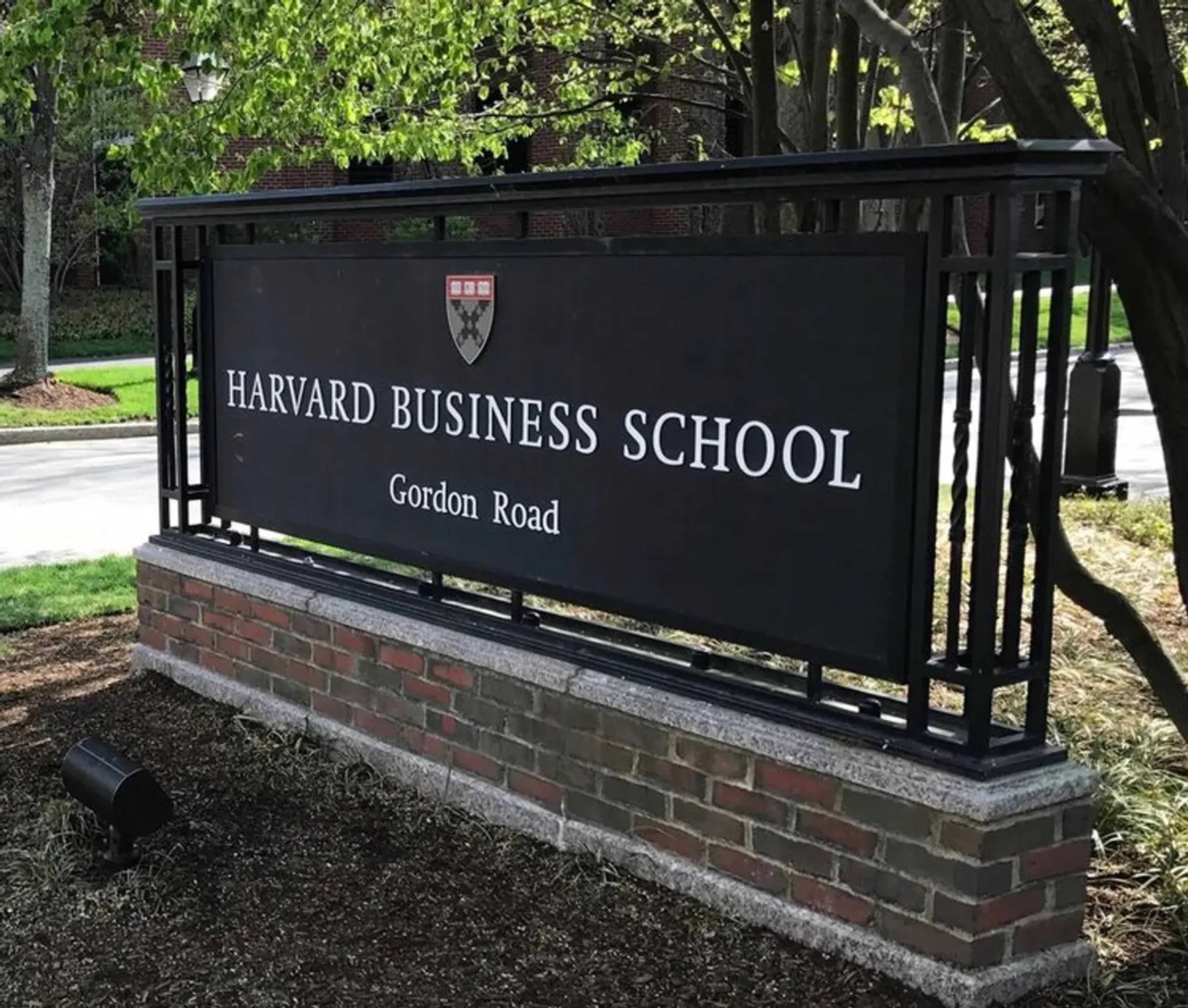
3. Booth School of Business, University of Chicago
- Location: Chicago, IL
- Tuition: $77,841 per year
- Acceptance Rate: 23-30%
The University of Chicago Booth School of Business offers a flexible MBA program that allows students to tailor their education to their specific interests and career goals. With a wide range of elective courses and concentrations, students have the opportunity to delve deep into areas such as finance, marketing, and more. The emphasis on data-driven decision-making and rigorous analytical training at Chicago Booth prepares students to excel in today's data-driven business world. Booth also offers a competitive part-time and executive MBA program.
- Chicago Booth MBA Class Profile: Key Insights & Takeaways
- Chicago Booth MBA Application Deadlines (2023-2024)

4. Kellogg School of Management, Northwestern University
- Location: Evanston, IL
- Tuition: $78,276 per year
- Acceptance Rate: 20-31%
The Kellogg School of Management at Northwestern is a prestigious business school offering a top-class business education. With an emphasis on collaboration, innovation, and creativity, the Kellogg community is a supportive environment perfect for aspiring professionals looking to become effective leaders and team players. Kellogg students are encouraged to tackle problems as a team through real-world exercises, projects, labs, and global opportunities. The school offers a part-time, executive, and one-year MBA program.

5. Wharton School of the University of Pennsylvania
- Location: Philadelphia, PA
- Tuition: $77,500 per year
- Acceptance Rate: ~23%
As one of the oldest and most prestigious business schools in the world, the Wharton School of the University of Pennsylvania offers a comprehensive MBA program (and executive MBA program) that equips students with the skills and knowledge needed to excel in finance, consulting, and other related fields. The rigorous Wharton curriculum covers a wide range of business topics, including finance, marketing, operations, and strategy. Its strong industry connections and extensive alumni network provide students with valuable networking opportunities and access to top employers.

6. MIT Sloan School of Management
- Location: Cambridge, MA
- Tuition: $84,200 per year
- Acceptance Rate: 15%
Located in Cambridge, Massachusetts, the MIT Sloan School of Management is known for its strong focus on technology, innovation, and entrepreneurship. The collaborative approach to problem-solving encourages students to work together to find innovative solutions to complex business challenges. With its close ties to the rest of the Massachusetts Institute of Technology, Sloan students have access to cutting-edge research and a vibrant ecosystem of startups and technology companies. The school also boasts an impressive alumni network and faculty members, and offers an EMBA program.
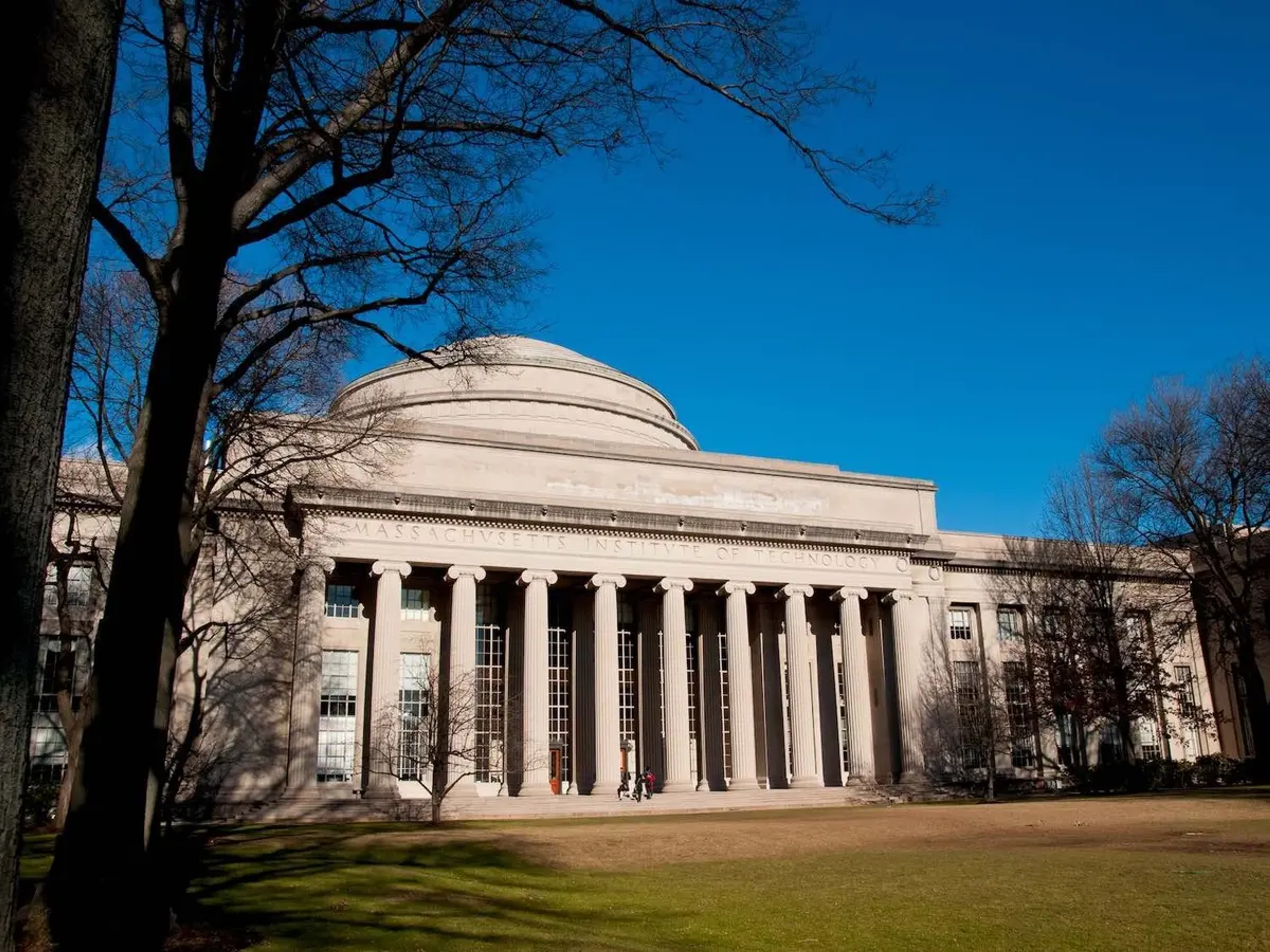
7. Columbia Business School
- Location: New York City, NY
- Tuition: $84,496 per year
- Acceptance Rate: 20-22%
Established in 1916, Columbia Business School is one of the oldest business schools in the world a prestigious alumni network and top-of-the-line research centers. With courses offered in full-term and half-term formats, the Columbia MBA curriculum is fast-paced with freedom for customization through electives, as well as majors like Healthcare and Real Estate. The school also offers a Part-Time Executive MBA Program for those further into their careers, as well as many joint and dual-degree programs, including a renowned JD/MBA program.

8. Tuck School of Business, Dartmouth College
- Location: Hanover, NH
- Tuition: $77,520 per year
- Acceptance Rate: 33%
With the full-time MBA program being the only degree program offered at Dartmouth College’s Tuck School of Business, students are part of a tight-knit community with a strong emphasis on wisdom, decisiveness, and leadership. Dartmouth Tuck is known for its highly engaged alumni network providing broad internship and full-time employment opportunities for MBA students and graduates.
- How to Nail Your Dartmouth Tuck MBA Interview: Overview, Questions, and Tips
- Dartmouth Tuck MBA Essays Guide: Overview, Tips & Examples

9. Ross Business School, University of Michigan-Ann Arbor
- Location: Ann Arbor, MI
- Tuition: $70,392 per year for Michigan residents, $75,392 for non-residents
- Acceptance Rate: 28%
The highest ranking public business school, the Ross Business School at the University of Michigan, is known for its strong emphasis on action-based learning, with opportunities for starting their own businesses, global consulting projects, student-led investment funds, and hands-on management. These practical experiences, collectively known as REAL, equip students with essential career knowledge and skills, earning Ross the #1 ranking in alumni effectiveness by The Economist.
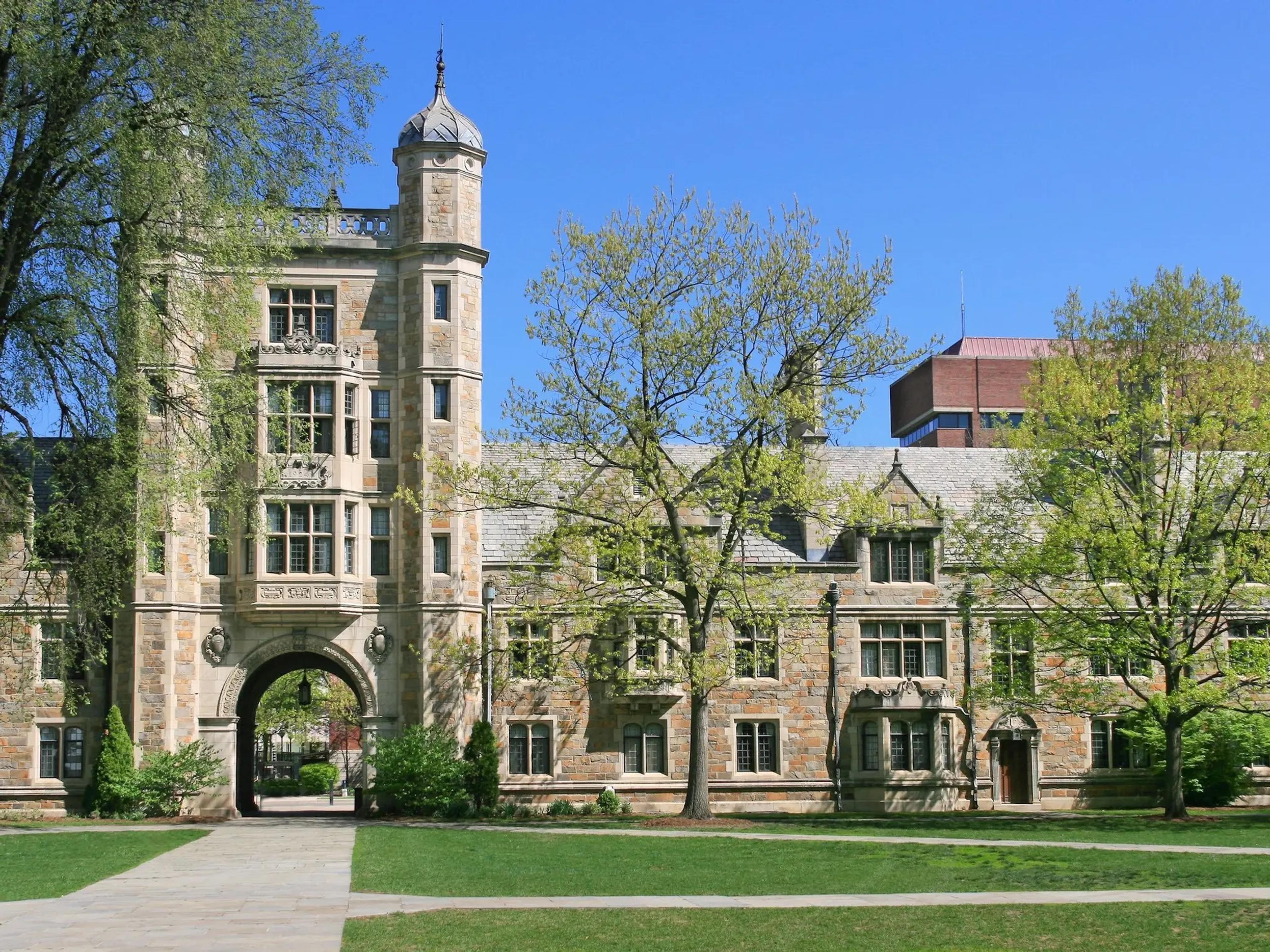
10. Yale School of Management (SOM)
- Location: New Haven, CT
- Tuition: $79,000 per year
- Acceptance Rate: 28%
Nestled in New Haven, Connecticut, the Yale School of Management offers an integrated MBA curriculum focused on “raw cases,” case studies in which students learn real-world decision-making skills utilizing online information. With broad opportunities for global study and leadership experiences, students learn to tackle pressing problems in business and society.

11. Stern School of Business, New York University
- Location: New York City, NY
- Tuition: $82,326 per year
- Acceptance Rate: 27%
The Leonard N. Stern School of Business at New York University offers a flexible curriculum with more than 20 specializations, such as luxury and retail, healthcare, and entertainment and media, allowing students to customize their education to fit their career goals. With experiential learning opportunities at top-tier firms and nonprofit organizations, Stern encourages students to make the most of the bustling business world in New York City.
- How to Nail the NYU "Pick Six" MBA Application Essay
- How to Nail Your NYU Stern MBA Interview: Overview, Questions, & Tips
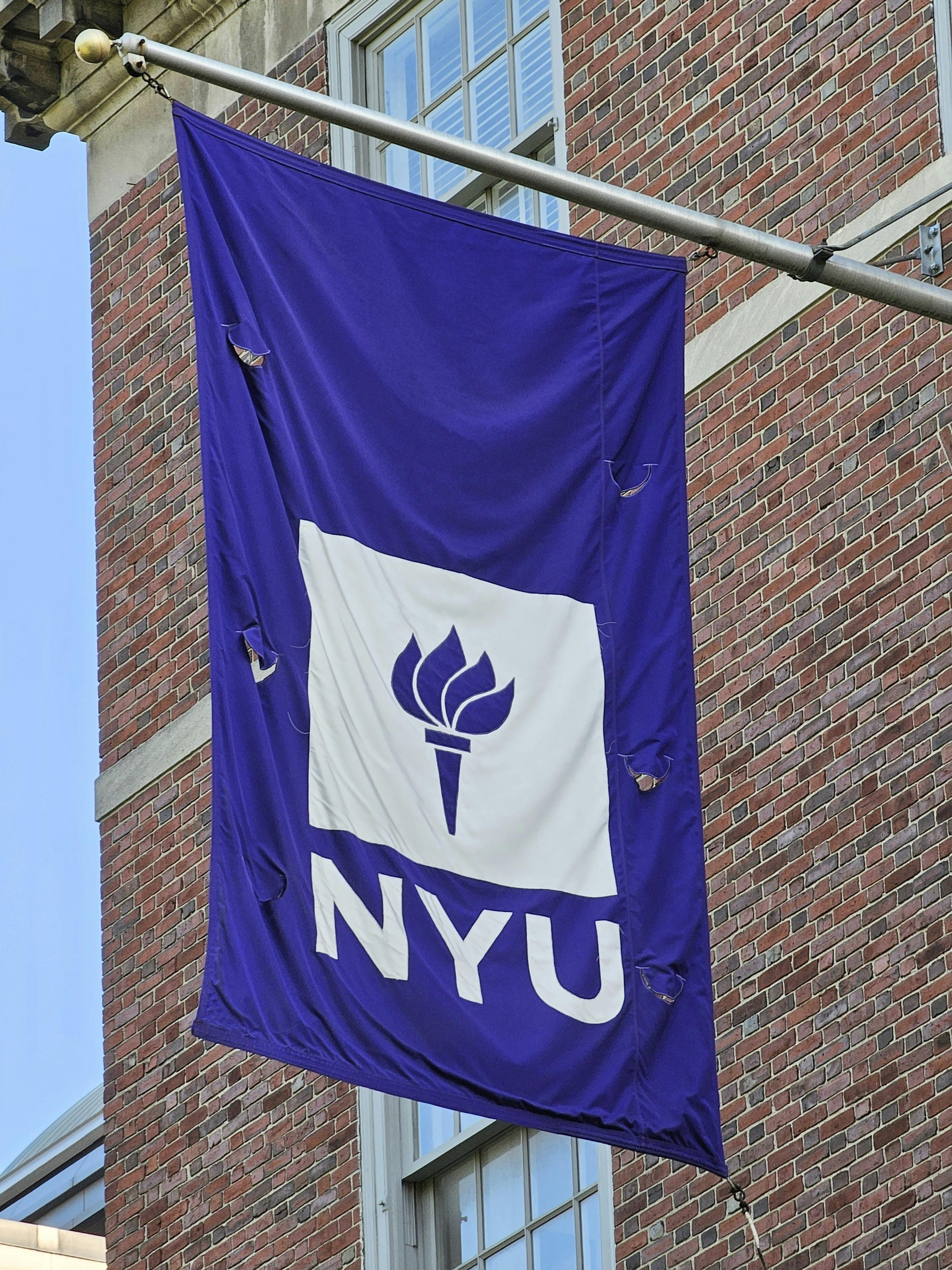
12. Fuqua School of Business, Duke University
- Location: Durham, NC
- Tuition: $71,750 per year
- Acceptance Rate: 21%
Duke University’s Fuqua School focuses on leadership and overcoming challenges prepares students to succeed in fields such as healthcare, finance, consulting, energy, and technology. Fuqua is unique among the top business schools in its MBA program structure: students take 6 week-long courses covering case studies, strategic games, and realistic simulations.

13. Haas School of Business, University of California-Berkeley
- Location: Berkeley, CA
- Tuition: $69,814 per year for California residents, $82,059 for non-residents
- Acceptance Rate: 20%
Located in the technologically innovative Bay Area, UC Berkeley’s Haas encourages students to develop bold leadership, confident decision-making, and business ethics and responsibility. Haas emphasizes creativity and hands-on experience through its Applied Innovation requirement, in which students work alongside nonprofit organizations and private firms to solve real-world problems.
- A Guide to the UC Berkeley Haas Accelerated Applicants Deferred MBA Program
- Berkeley Haas MBA Essays Guide: Overview, Tips & Examples

14. Darden School of Business, University of Virginia
- Location: Charlottesville, VA
- Tuition: $72,060 per year for Virginia residents, $74,378 for non-residents
- Acceptance Rate: 34%
The University of Virginia’s Darden School of Business is one of the highest ranking public business schools and prides itself on offering students breadth in academic preparation, global understanding and diversity of thought. With more than 500 recruiting events held annually, Darden MBA students have extensive opportunities to build their careers.
- Why I Chose Darden for My MBA Program
- How to Tackle the UVA Darden MBA Application Essays
- UVA Darden: Future Year Scholars Deferred MBA Program
- UVA Darden MBA Application Deadlines

15. Johnson Graduate School of Management, Cornell University
- Location: Ithaca, NY
- Tuition: $79,910 per year
- Acceptance Rate: 31%
As an Ivy League institution, the Samuel Curtis Johnson Graduate School of Management at Cornell is one of the most prestigious business schools in the nation. Known for its consulting, entrepreneurship, technology, and investment banking expertise, the full-time MBA program at Cornell Johnson prepares students to become industry leaders through its unique Immersion Learning experiences.
- Cornell Johnson MBA Application Deadlines
- Cornell Johnson MBA Essays Guide: Overview, Tips & Examples

16. Marshall School of Business, University of Southern California
- Location: Los Angeles, CA
- Tuition: $72,501 per year
- Acceptance Rate: 25%
Nested in the heart of Los Angeles, the University of Southern California’s Marshall School of Business boasts strong connections to companies based in LA, but also offers a wide range of global opportunities. MBA students at Marshall will work on team-based consulting projects with LA-based firms and participate in a 10-day PRIME trip to learn about business abroad.

17. Goizueta Business School, Emory University
- Location: Atlanta, GA
- Tuition: $71,900 per year
- Acceptance Rate: 37%
At the Goizueta Business School, leadership is a key part of the MBA education, which students will learn through the Goizueta Leadership Development Program and 160 different leadership opportunities. Its focus on leadership, career development, and impact makes Goizueta a strong choice for students interested in an intensive and intimate learning experience.

18. Tepper School of Business, Carnegie Mellon University
- Location: Pittsburgh, PA
- Tuition: $75,712 per year
- Acceptance Rate: 29%
As the birthplace of management science, the Tepper School of Business has always been at the forefront of business education. The analytics-focused curriculum at Tepper trains MBA students to become adept at data interpretation and management, preparing them for the increasingly technological business world.
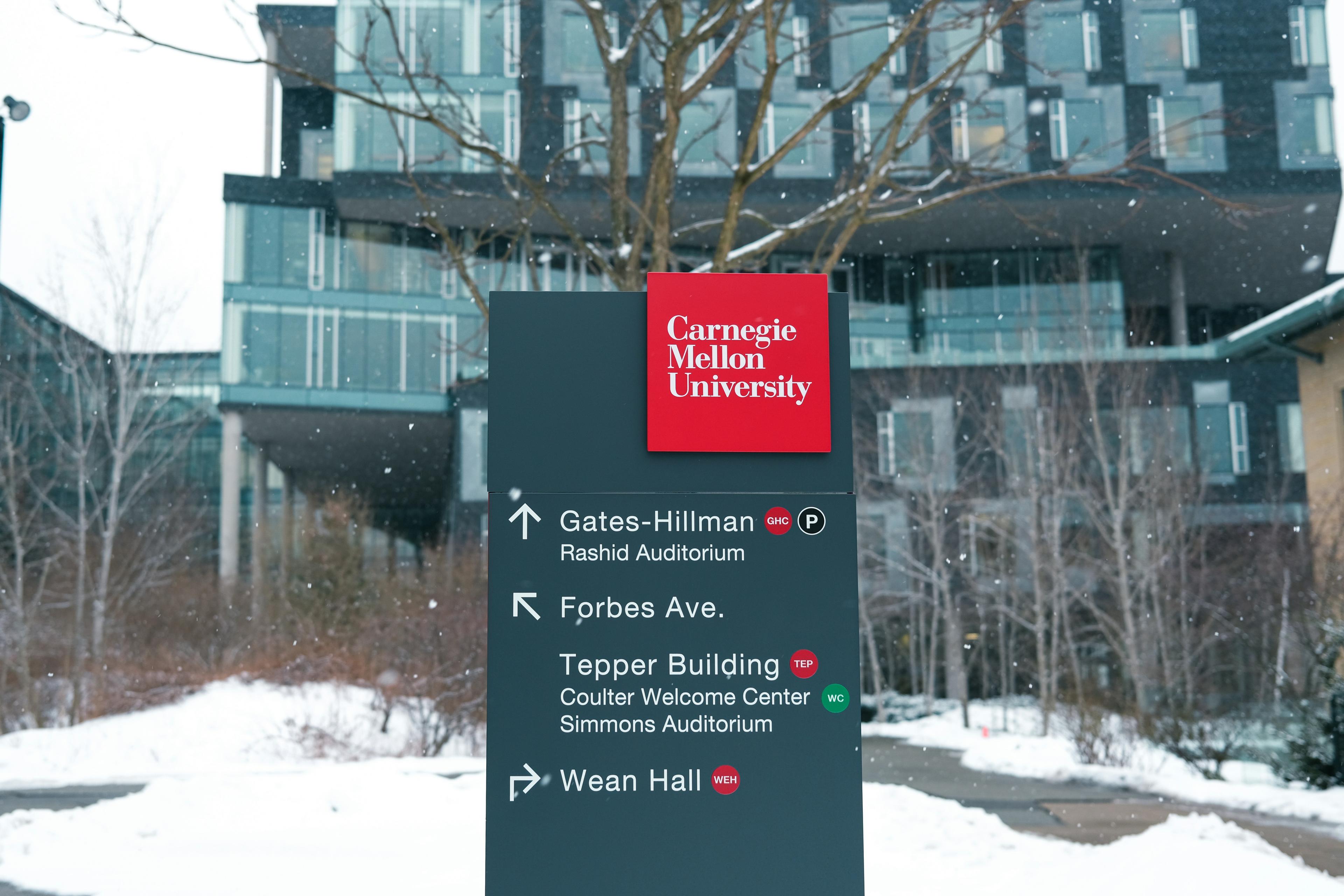
19. Anderson School of Management, University of California-Los Angeles
- Location: Los Angeles, CA
- Tuition: $78,350 per year
- Acceptance Rate: 38%
Known for its bold and intellectually curious approach to business, the Anderson School of Management at UCLA has an emphasis on real-world learning throughout its full-time MBA program curriculum. Students work with clients on real-world issues, create their own businesses, manage investment funds, and participate in group capstone projects.
- The UCLA Anderson MBA Program: Expectation vs. Reality
- UCLA Anderson MBA Application Deadlines
- How to Nail Your UCLA Anderson MBA Interview
- UCLA Anderson MBA Essays Guide
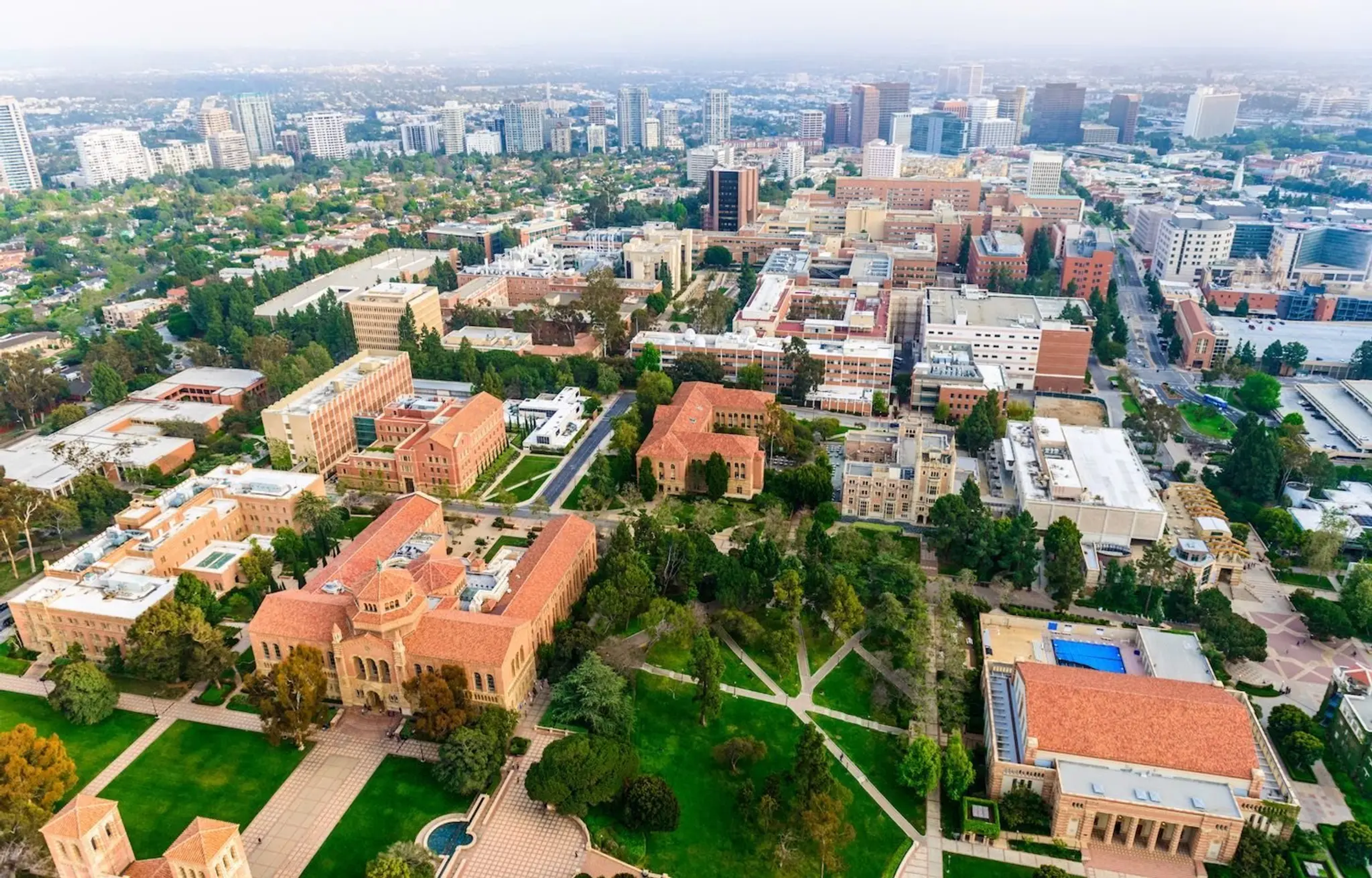
20. McCombs School of Business, University of Texas-Austin
- Location: Austin, TX
- Tuition: $52,550 per year for Texas residents, $58,720 for non-residents
- Acceptance Rate: 34%
With more than 70% of the full-time MBA curriculum being self-selected, UT Austin McCombs provides students with unparalleled freedom in customizing their business education. Students can choose from more than 20 MBA concentrations, including 14 STEM-certified concentrations, and more than 10 dual-degree programs.

21. Foster School of Business, University of Washington
- Location: Seattle, WA
- Tuition: $40,008 per year for Washington residents, $57,846 for non-residents
- Acceptance Rate: 28%
The University of Washington’s Foster School of Business prides itself on its tight-knit student community, collaborative approach to business education, and Foster partnerships with nearby companies. Foster assigns each student an academic coach to truly customize their academic journey through elective courses, internships, and consulting projects.

22. Kelley School of Business, Indiana University
- Location: Bloomington, IN
- Tuition: $28,992 per year for Indiana residents, $54,602 per year for non-residents
- Acceptance Rate: 24%
The Kelley School of Business' MBA curriculum is uniquely career-focused: first-year students will choose an industry-focused Academy in which they will learn about and visit companies in their field of interest, network with industry professionals, learn about industry trends, build sector-specific skills, complete a company-based consulting project, and receive guidance from an Academy director, career coach, and MBA mentor.

23. Kenan-Flagler Business School, University of North Carolina-Chapel Hill
- Location: Chapel Hill, NC
- Tuition: $53,552 per year for North Carolina residents, $71,364 per year for non-residents
- Acceptance Rate: 36%
The Kenan-Flagler Business School emphasizes business education both inside and outside the classroom through opportunities such as student-managed funds, case competitions, and hands-on STAR projects. With 13 concentrations and one focus area, including its prestigious Real Estate concentration, students can also customize their education to suit their unique career goals.
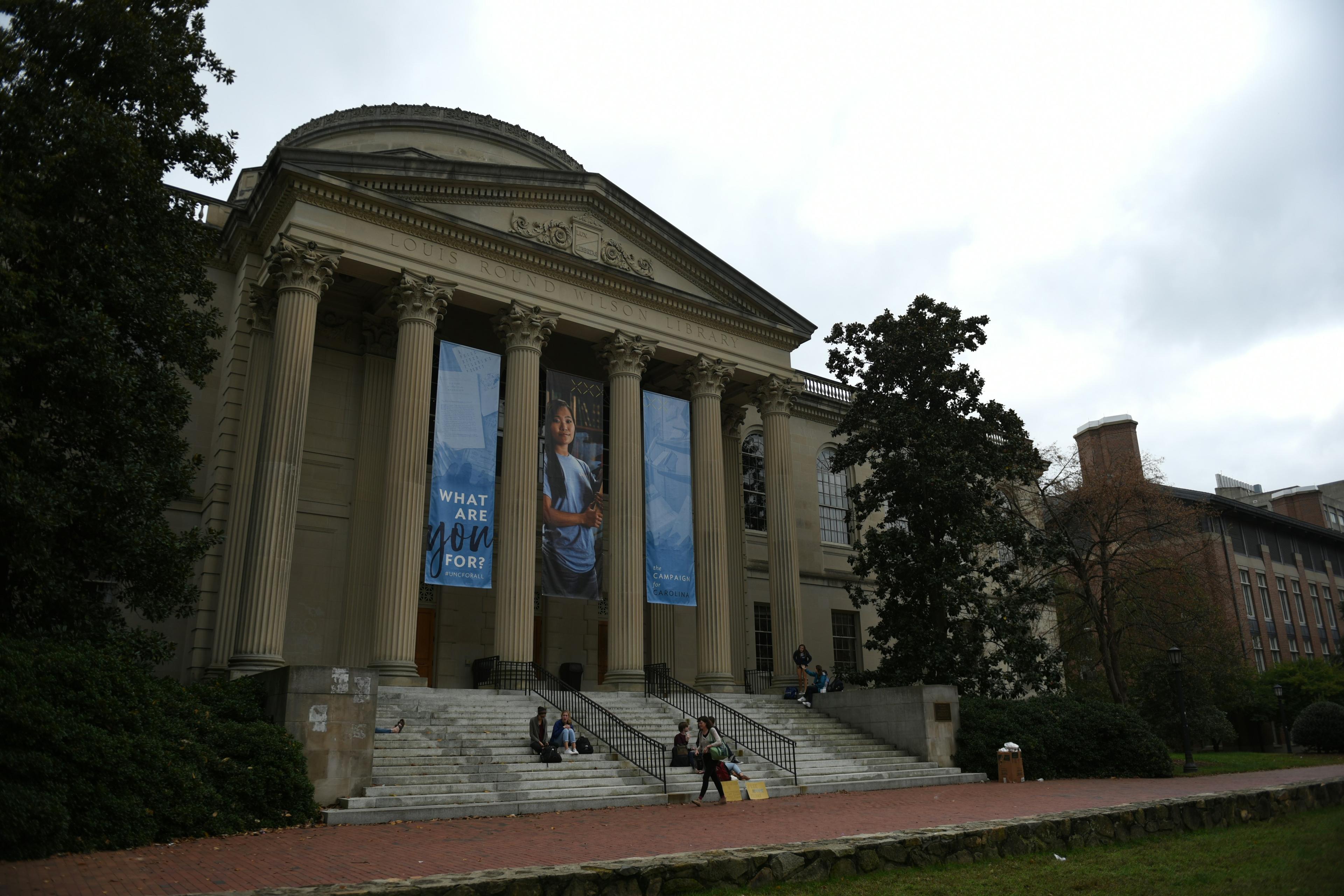
24. McDonough School of Business, Georgetown University
- Location: Washington, DC
- Tuition: $64,600 per year
- Acceptance Rate: 51%
Nestled in Washington DC’s historic Georgetown neighborhood is the McDonough School of Business, which is known for its education in international business, nonprofit management, and project management. Due to its proximity to the capitol, McDonough boasts strong ties with government institutions, major firms, and start-ups in the area.

25. Jones Graduate School of Business, Rice University
- Location: Houston, TX
- Tuition: $73,500 per year
- Acceptance Rate: 43%
Known for its finance, entrepreneurship, and consulting education, the Jones Graduate School of Business is one of the best business schools in the state of Texas. With opportunities for global experiences and professional training, students receive a practical education tailored towards their future careers.
Each of the top 25 MBA programs has its unique strengths, emphasis, and admission requirements. Researching each program thoroughly will help you make an informed decision about where to apply.

More Top MBA Program Lists
By Geography
By Specialty
- The Best MBA Programs for Marketing
- The Best MBA Programs for Entrepreneurship
- The Best MBA Programs for Real Estate
- The Best MBA Programs for Engineers
- Top MBA Programs for Product Management
- The Top 10 MBA Programs for Private Equity
Read these next:
Browse hundreds of expert coaches
Leland coaches have helped thousands of people achieve their goals. A dedicated mentor can make all the difference.


























